Health
CDC, WebMD give update on current bird flu outbreak: ‘Be alert, not alarmed’
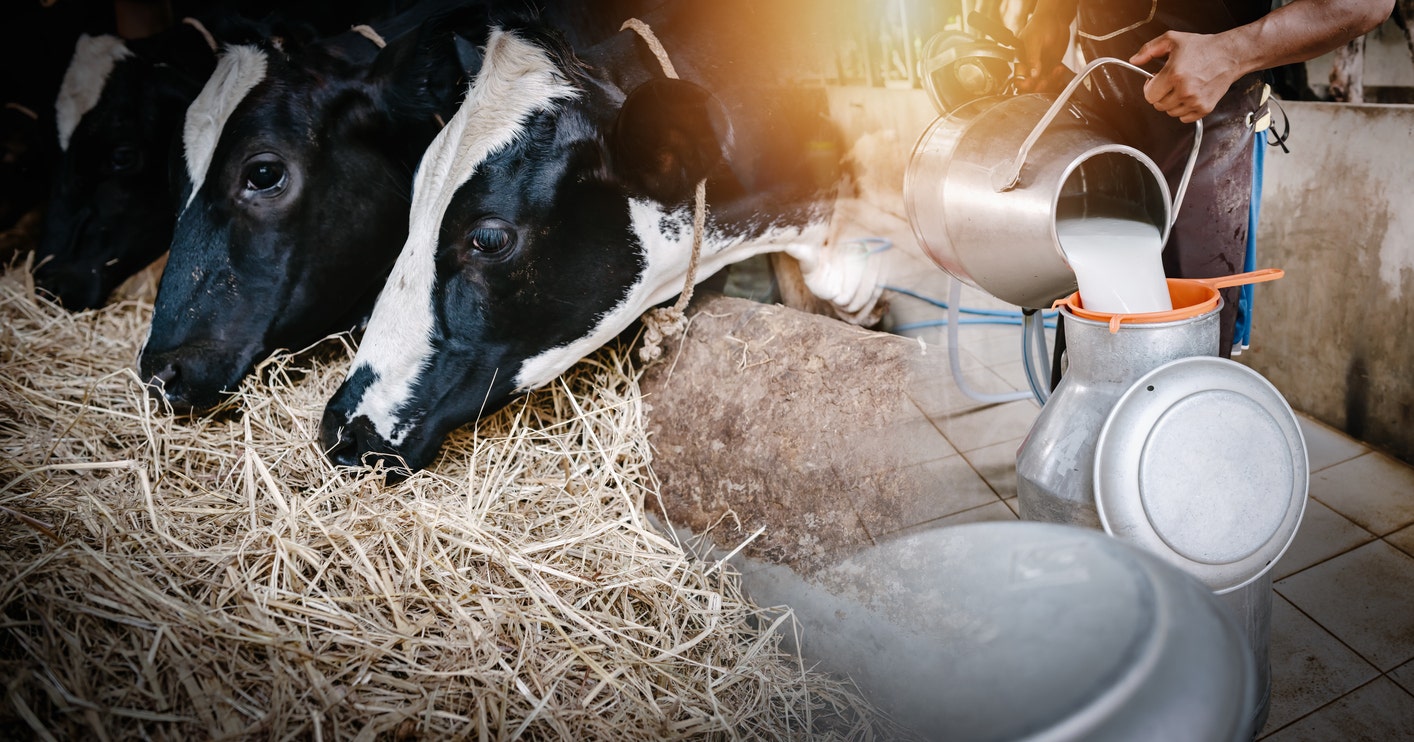
As bird flu continues to spread among cattle in the U.S., WebMD and the Centers for Disease Control and Prevention (CDC) joined forces on Thursday to present a live-streamed briefing on the status of the outbreak.
The presentation, called “WebMD and CDC Presents, 2024 Bird Flu: What You Need to Know,” was moderated by Neha Pathak, M.D., chief physician editor for WebMD in Atlanta, Georgia.
The first reports of sick dairy cows came to the USDA in early March, according to Eric Deeble, deputy assistant secretary for the Office of Congressional Relations at the United States Department of Agriculture (USDA) in Washington, D.C.
AMID BIRD FLU SPREAD, EXPERTS REVEAL IF IT’S SAFE TO DRINK MILK
Testing revealed that the cows had contracted H5N1, more commonly known as avian influenza, or bird flu.
“Any new disease of cattle is a great concern to us,” Deeble said during the briefing.
As bird flu continues to spread among cattle in the U.S., WebMD and the CDC issued an update on Thursday. (Getty Images)
“The H5N1 in cattle is a relatively mild disease. They generally recover after supportive care” within two to three weeks, he said.
“Their milk volume returns to normal, and they appear healthy and continue to feed as they did before they became sick.”
“Any new disease of cattle is a great concern to us.”
So far, the USDA has detected H5N1 in 49 dairy herds in nine states, Deeble stated.
“To put that into perspective, that’s around 1% of dairy farms in the affected states and about 1/10th of 1% nationally,” he said.
On April 29, a federal order from the USDA took effect, limiting the movement of lactating dairy cattle in an effort to monitor and compile H5N1 test results.
TEXAS CATS DIE ON DAIRY FARM AFTER DRINKING RAW MILK CONTAMINATED WITH BIRD FLU, CDC WARNS
“Under this order, dairy farmers are required to test their cows before moving them across state lines so that we know those cows are H5N1-free and don’t pose a risk to any new herd,” Deeble said.
The order also requires that any test results that detect the presence of H5N1 are reported to USDA labs.
No current food risk, experts say
Deeble assured those tuning in on Thursday that there is no risk with consuming milk and meat.
“I can say without reservation that our commercial milk and meat supplies are safe,” he said. “At no time were animals that are sick from H5N1 or any other animal disease permitted to enter into our food supply.”
He added, “USDA has never detected H5N1 in meat sold at retail.”
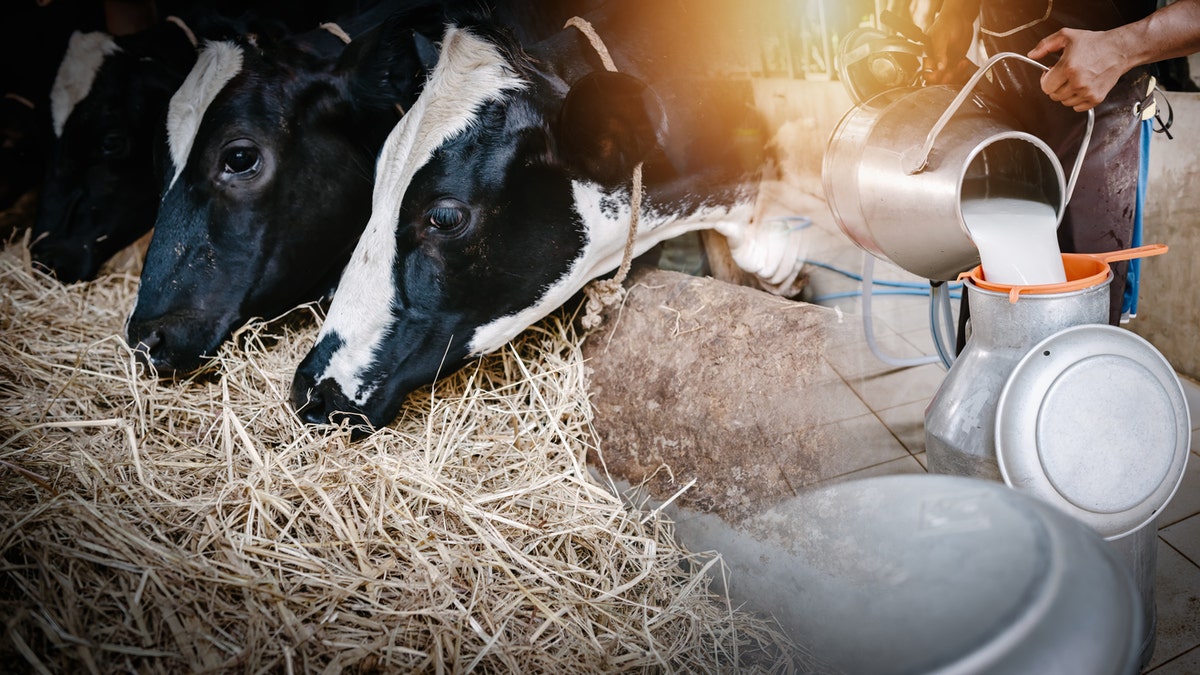
The first reports of sick dairy cows came to the USDA in early March, health officials said. (iStock)
Tests have confirmed that cooking meat to an internal temperature of 155 or above is sufficient to eliminate all traces of the virus, Deeble noted.
For milk, the pasteurization process ensures it is safe to drink, he said.
“Our milk is cleared to a high temperature for a brief period of time, inactivating H5N1, as well as other bacteria and viruses that could make someone sick,” he said.
Risk of transmission to humans
The overall risk to the public from bird flu is low, according to Dr. Nirav D. Shah, M.D., principal deputy director of the CDC in Atlanta.
“That is in part because it’s rare for people to get infected with bird flu viruses — but it has happened,” he said during the briefing.
“If and when it does happen, it’s most often through direct unprotected contact with infected animals — for example, not wearing gloves, face masks or eye protection.”
COULD A BIRD FLU PANDEMIC SPREAD TO HUMANS? HERE’S WHAT YOU NEED TO KNOW
In April, the CDC reported one human case of bird flu in a dairy worker in Texas, Shah said.
“This person’s only symptom was eye redness, or conjunctivitis,” he said. “After testing positive, this person was provided [with] an antiviral medicine and thankfully made a full recovery. There have been no new or additional human cases since this individual in Texas.”
Other symptoms to watch for include cough, fever, muscle aches and fatigue, according to Shah.
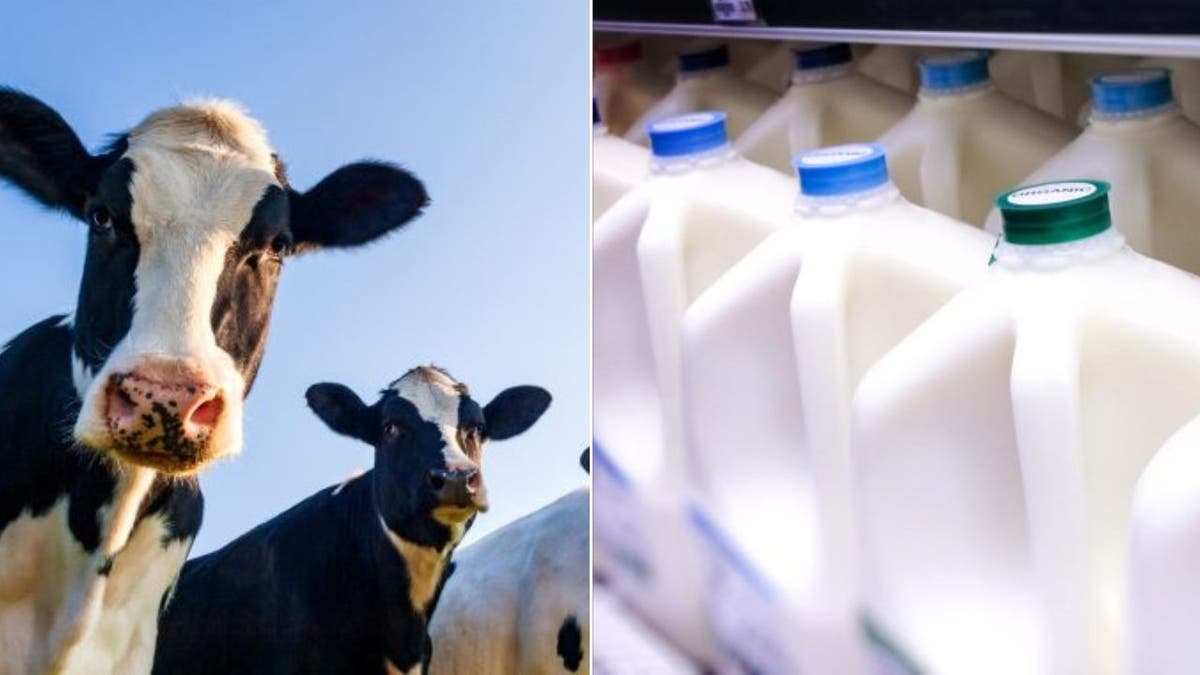
Experts said there is no risk associated with drinking milk purchased commercially. (iStock)
Although the overall risk to humans is low, the CDC is taking “aggressive steps” to make sure Americans stay well and informed, Shah said.
“Right now, one of our top areas of focus is around farm worker safety and protection — specifically making sure that workers have access to personal protective equipment … like gloves, goggles or face masks, which can help reduce their risk of exposure if they happen to be working around affected cows.”
MAINE WILDLIFE AUTHORITIES FIND 6 DEAD WILD DUCKS THAT TESTED POSITIVE FOR BIRD FLU
The CDC is also working with local health departments to ensure that sick farmers are tested for bird flu and to monitor their status.
“In addition to that, scientists in our laboratories here at CDC are looking closely at the bird flu viruses to see if there are any changes in their DNA that might tell us if these viruses are able to spread more easily to people, between people, and, importantly, whether they might be causing more serious illness,” Shah added.
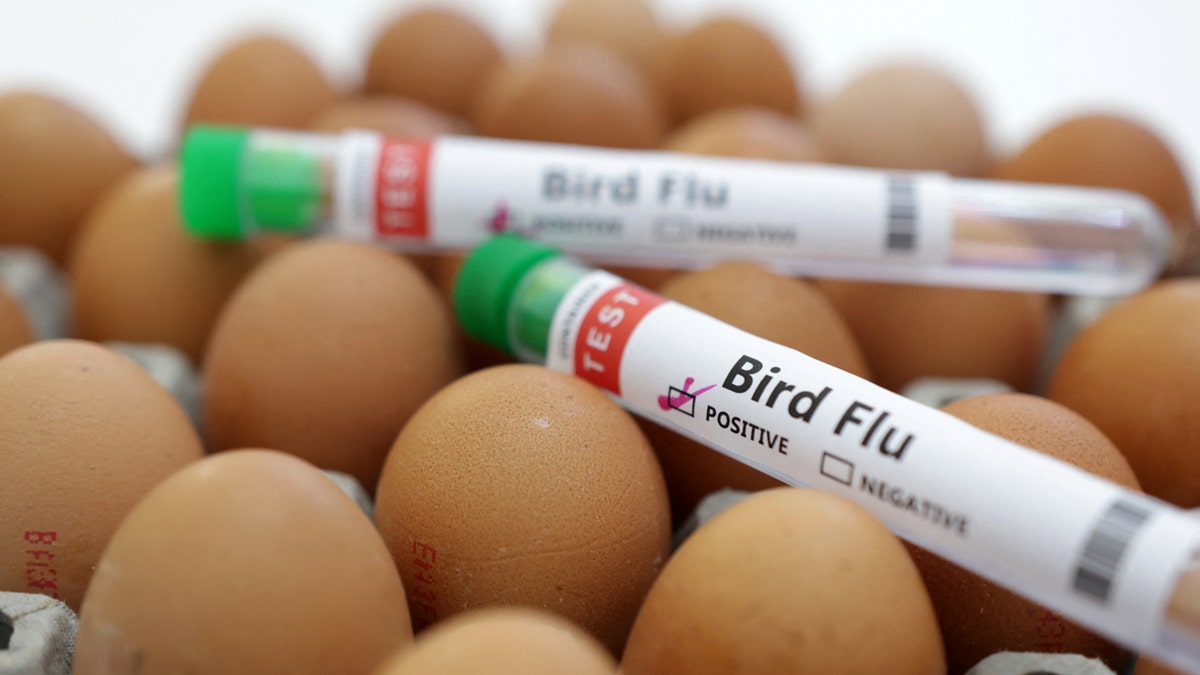
Although the overall risk to humans is low, the CDC is taking “aggressive steps” to make sure Americans stay well and informed, a doctor said. (REUTERS/Dado Ruvic/Illustration/File Photo)
Although the risk to the public “remains low” currently, the doctor offered guidance for certain groups that may be at a higher risk.
“If you happen to work around animals, whether it’s chickens, whether it’s cattle, or whether it’s pigs, and you develop signs and symptoms that might otherwise be the flu, it’s important to make sure you call a health care provider and have a conversation with them.”
Not another COVID, experts say
The current situation with bird flu is different from the early days of COVID-19, Shah said during the briefing.
“We are in a much different place because of over two decades of investment in planning and preparing for things like influenza,” he said.
CDC WARNS OF INVASIVE BACTERIAL OUTBREAK AMID SPIKE IN CASES AND FATALITY RATES: ‘RARE BUT SEVERE’
“As a result of that extensive planning and preparedness, there are medicines in place.”
If those medications are given early, they can reduce the severity and duration of illness, as was the case with the farmer in Texas, Shah noted.
“This is just one of many ways in which … influenza and bird flu differs from what many of us remember from four years ago,” he added.
Vaccines and prevention
The traditional influenza vaccine doesn’t provide much protection against avian flu, the experts noted.
“Even though they are … basically the same virus, they differ just enough to where the flu shot — which we hope everyone gets — doesn’t do a great job at protecting you,” said Shah.
“It might do a little bit of work, but it’s not enough to take you to the bank.”

“We’re not at a spot where vaccination is recommended for anyone,” a doctor said in the briefing on Thursday. (Julian Stratenschulte/dpa)
David Boucher, PhD, director of Infectious Diseases Preparedness and Response at ASPR in Washington, D.C., spoke during the Thursday briefing about the potential need for a bird flu vaccine.
“We’re not at a spot where vaccination is recommended for anyone,” he said.
Through the National Influenza Vaccine Program, the ASPR works with health partners to identify influenza viruses that are “just a little bit different from the things that we’ve seen in the past,” Boucher said.
WITH WHOOPING COUGH CASES ON THE RISE, DO YOU NEED A BOOSTER VACCINE?
For a novel virus, the team develops “building blocks” of a vaccine, he noted.
“The good news here is that this system has worked the way we hoped it would, and we have an initial supply of the building blocks we would need if we needed vaccines for the [H5N1] virus,” he said.
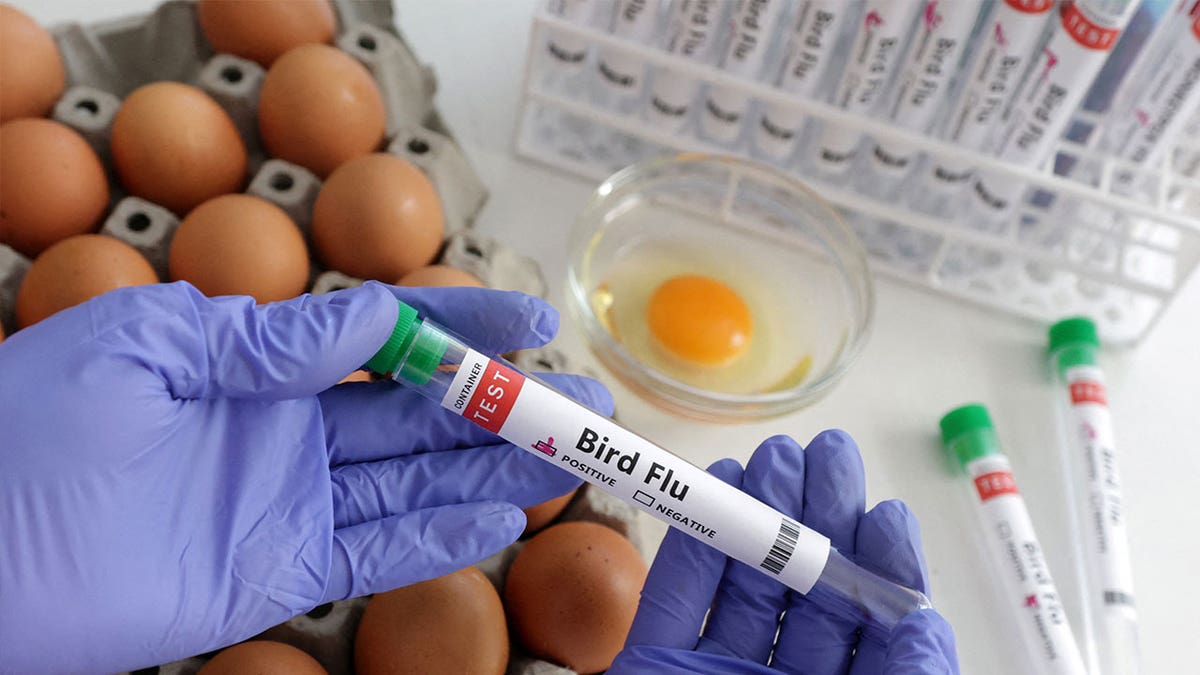
To monitor potential spread, the CDC is on the lookout for an increase in emergency department visits or laboratory tests that might signal a “cluster of cases,” a doctor said. (REUTERS/Dado Ruvic/Illustration)
In that scenario, Boucher said, the ASPR could partner with manufacturers of seasonal influenza vaccines for “large-scale” production.
Boucher also emphasized the importance of personal protective equipment (PPE) — such as gloves, goggles, face shields and N95 masks — for agricultural workers who may be close to infected animals.
CLICK HERE TO SIGN UP FOR OUR HEALTH NEWSLETTER
To monitor potential spread, the CDC is on the lookout for an increase in emergency department visits or laboratory tests that might signal a “cluster of cases,” Shah said.
“We’re also more recently looking at wastewater to see if there are changes there,” he said.
People can stay up to date on the latest bird flu developments from the CDC, the USDA, the FDA and other trusted sources of information, Shah added.
“We should be alert, not alarmed.”
For more Health articles, visit www.foxnews.com/health.

Health
Can Eating Red Foods Really Help You Lose Weight? Experts Share the Truth

Use left and right arrow keys to navigate between menu items.
Use escape to exit the menu.
Sign Up
Create a free account to access exclusive content, play games, solve puzzles, test your pop-culture knowledge and receive special offers.
Already have an account? Login
Health
Your late-night TV binge could sabotage your brain health, doctor warns

NEWYou can now listen to Fox News articles!
Staying awake to watch “just one more episode” is a classic excuse for delaying bedtime.
And with popular shows like Peacock’s “Love Island” airing almost every night as the drama unfolds live, there’s more pressure to finish the latest episode and to engage in conversation with others the next day.
In addition to making us sleepier in the morning, staying awake to watch TV is not good for the brain, according to Daniel Amen, a psychiatrist, brain imaging doctor and founder of Amen Clinics in California.
YOUR BRAIN PHYSICALLY CHANGES WHEN YOU WORK TOO MUCH, SCIENTISTS WARN
“‘I just have to watch the last episode’ of whatever show you’re watching, and you end up cutting out half an hour or an hour of sleep,” he said in an interview with Fox News Digital.
In this case, the doctor advised, “Don’t make important decisions the next day, because your brain has not been properly ‘washed.’ And you’re just more likely to make a bad decision.”
The pressure to stay up-to-date on the latest episode or streaming series often leads to delayed bedtimes. (iStock)
Amen stressed that prioritizing sleep is “absolutely essential,” because when you sleep, your brain “cleans and washes itself.”
Getting an adequate night’s sleep helps improve memory the next day, as well as energy, focus and blood flow, the doctor said.

Dr. Daniel Amen (shown right) explains how failing to prioritize sleep can damage the brain. (Katie Levine; iStock)
“If you want your memory better tomorrow, go to bed half an hour early tonight,” he suggested. “Given that, we can record [shows] or we can always watch them the next day.”
“If you want your memory better tomorrow, go to bed half an hour early tonight.”
“How much do you love yourself?” Amen questioned. “Because doing the right thing is never about deprivation.”
The doctor encourages adopting the following mindset.
CLICK HERE TO SIGN UP FOR OUR HEALTH NEWSLETTER
“I want energy. I want memory. I want focus. I want passion. I want purpose. I want blood flow. I never want to do anything that hurts [the brain].”
“It’s about the abundance of what I want rather than what I can’t have,” Amen added. “You’re going to get serious about brain health.”

Exposure to blue light reduces the production of melatonin, decreasing the quality of sleep, according to experts. (iStock)
Exposure to screens and blue light before bed also decreases the production of melatonin, leaving you less sleepy, Amen cautioned.
“Mindlessly scrolling – you’re going to have the fear of missing out almost immediately, which also increases stress,” he added.
For more Health articles, visit foxnews.com/health
The expert recommended adding blue-light blockers to all devices that turn on when the sun goes down to help ease into a restful night’s sleep.
Health
This Chia Seed Lemonade Can Curb Cravings + Boost Weight Loss!

Use left and right arrow keys to navigate between menu items.
Use escape to exit the menu.
Sign Up
Create a free account to access exclusive content, play games, solve puzzles, test your pop-culture knowledge and receive special offers.
Already have an account? Login
-

 Politics1 week ago
Politics1 week agoVideo: Trump Signs the ‘One Big Beautiful Bill’ Into Law
-

 Education1 week ago
Education1 week agoOpinion | The Ugliness of the ‘Big, Beautiful’ Bill, in Charts
-

 World1 week ago
World1 week agoRussia-Ukraine war: List of key events, day 1,227
-

 News4 days ago
News4 days agoVideo: Trump Compliments President of Liberia on His ‘Beautiful English’
-

 News1 week ago
News1 week agoDeath toll from Texas floods rises to 24 as search underway for more than 20 girls unaccounted for | CNN
-
Business7 days ago
Companies keep slashing jobs. How worried should workers be about AI replacing them?
-

 News7 days ago
News7 days agoTexas Flooding Map: See How the Floodwaters Rose Along the Guadalupe River
-

 Technology1 week ago
Technology1 week agoCyberpunk Edgerunners 2 will be even sadder and bloodier















